MACoM Clears Debt With First Gala
The community mikvah and its supporters celebrate founding fathers Rabbis Alvin Sugarman and Joshua Heller.
The Metro Atlanta Community Mikvah took the plunge on its first gala fundraiser Thursday night, March 16, and emerged from the Georgia Aquarium event clean and refreshed.
But for one night, instead of the living waters of the mikvah, it was the lifeblood of money that renewed MACoM and the supporters of a nondenominational, nonjudgmental community mikvah.
By the time emcee Mike Leven, the aquarium’s CEO, took the podium to start the program, the first Mitzvah for the Mikvah had already succeeded. Through sponsorships, donations and ticket sales, the event raised $300,000 after expenses — enough to pay off MACoM’s $275,000 debt and put away $25,000 for operational expenses. And those numbers don’t include an additional $90,000 in outstanding pledges that now also will go toward operations, Leven said.
Get The AJT Newsletter by email and never miss our top stories Free Sign Up
With the event’s business settled from the start, the night could focus on the spiritual and emotional reasons more than 250 people gathered to celebrate the mikvah and honor its founding fathers, Rabbis Alvin Sugarman and Joshua Heller.
-

- Members of the Weber School dance ensemble perform a special dance on the theme of the seven steps of mikvah preparation.
-
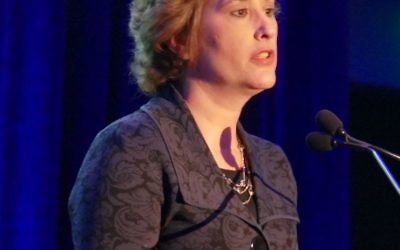
- Michelle Cooper says the mikvah helped mark her transition from sickness to health after she beat cancer.
-
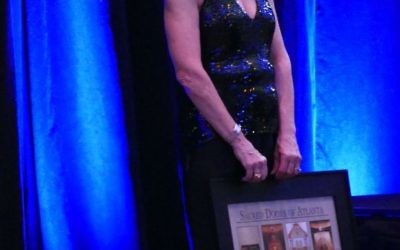
- MACoM Executive Director Barbara LeNoble holds artwork that will be presented to Rabbi Alvin Sugarman.
-
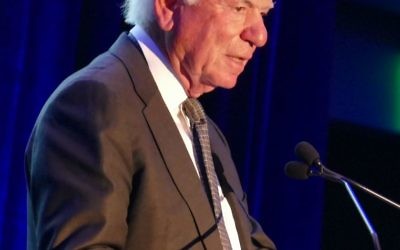
- Georgia Aquarium CEO Mike Leven says the Jewish community as a whole could learn from the unity behind MACoM.
-
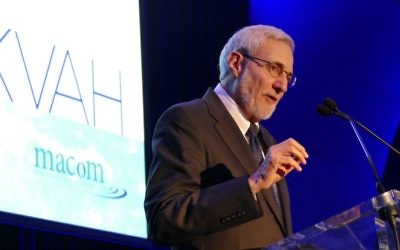
- Rabbi Alvin Sugarman was instrumental in bringing Atlanta a nondenominational community mikvah, MACoM, where “the water does not quench the fire. It ignites and brightens the soul, that spark of G-d that dwells within each of us.”
-
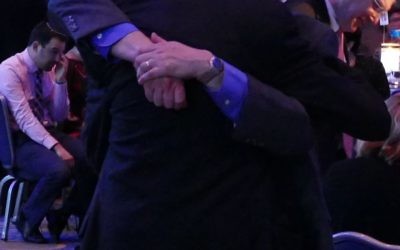
- Rabbis Alvin Sugarman and Joshua Heller share a hug after Rabbi Sugarman’s speech accepting MACoM’s recognition March 16.
It was Rabbi Sugarman, the former senior rabbi at The Temple, who heard author Anita Diamant speak about Boston’s community mikvah, Mayyim Hayyim, at a Union for Reform Judaism biennial and brought the idea back to Atlanta and the Marcus Foundation.
It was Rabbi Heller, drawn to Congregation B’nai Torah 13 years ago in part because it had its own mikvah, who bought into the idea of replacing that decaying mikvah with an independent facility on the site during the synagogue’s extensive renovations.
And it was the pair of them embracing on the floor of the Oceans Ballroom near the end of the gala, celebrating not just the success of their vision for a welcoming, state-of-the-art mikvah, but also the friendship that developed between them since they met in 2010.
“Rabbi Sugarman and Rabbi Heller had a vision that few of us had: a true community mikvah as an essential part of our Jewish community,” past B’nai Torah President Brian Mand said.
Rabbi Heller acknowledged how unlikely it was for the two rabbis from different denominations and different generations to work together, let alone become close friends.
While Rabbi Heller joked that he’s the mikvah’s chief pool officer or a pious pool boy, Rabbi Sugarman called him “the Julio Jones of the mikvah world,” catching the idea of a community mikvah and running it in for a touchdown. “Your friendship has blessed my life more than I can say.”
Rabbi Heller said he and the Marcus Foundation’s Jay Kaiman agree that MACoM is the craziest thing either of them ever attempted and got away with. The rabbi said he has 80 computer files of mikvah proposals; 12 of them are marked “final.”
“I never thought Heller could pull it off,” Leven said to explain why he and his son, Rob, committed to the project early on.
MACoM didn’t exist physically or as a nonprofit entity 27 months ago, but since opening in November 2015, it has seen more than 300 immersions, President Caryn Hanrahan said. Some 30 guides, male and female, ages 24 to 81, have gone through eight hours of training to facilitate those mikvah visits, Tracie Bernstein said.
Testimonials throughout the night addressed the reasons people visit, beyond the monthly rules of ritual purity for women and the dip required for conversion.
Weber School sophomore Aliza Abusch-Magder spoke of the importance for teenagers to have a “judgment-free zone” after facing the often-brutal comments about their bodies in high school.
Michelle Cooper said MACoM helped her emerge from sickness to health as a transformed person after a successful battle against cancer.
Above all, Leven said, MACoM is a place of unity for the Jewish community at a time of rising anti-Semitism and deep political divides. “The community mikvah is a place where we can be together no matter what,” he said. “We need to transfer that to our relationships with each other.”




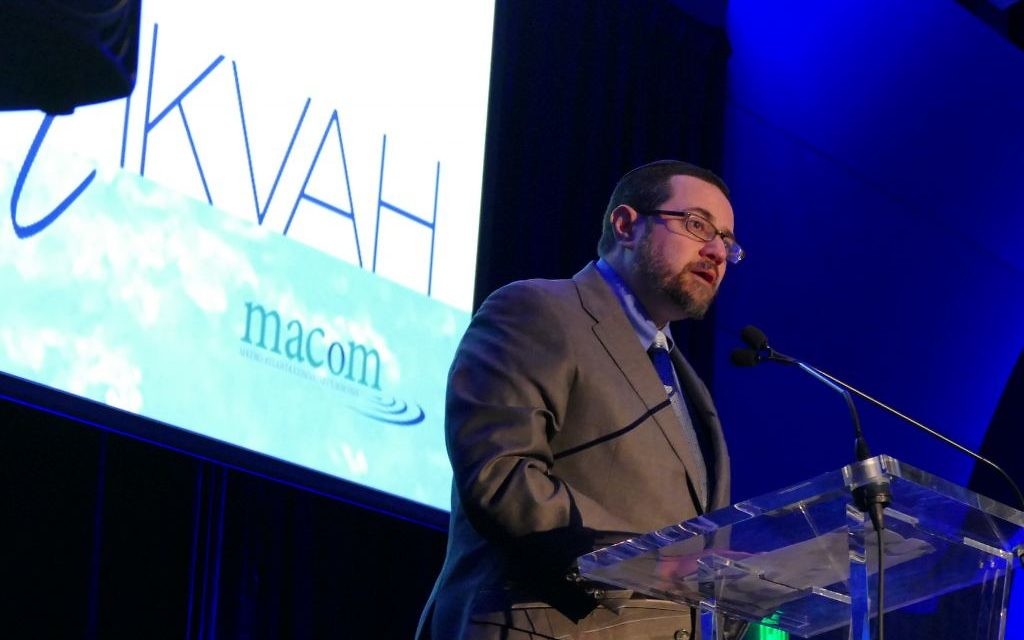
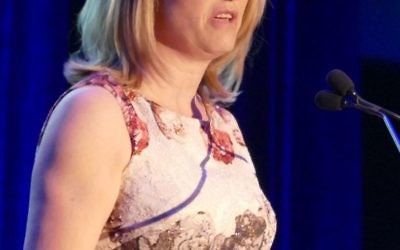
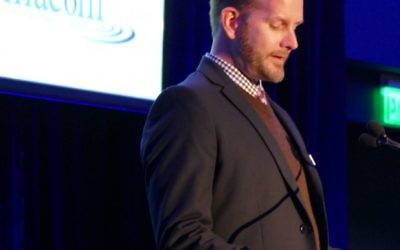

comments